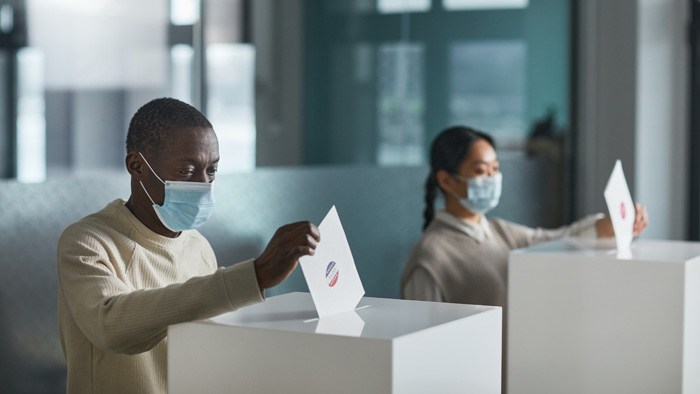Perspective: Petition is the Freedom that Gets Things Done

The freedom to petition is one of our most underrated rights. Not many Americans can name it, and those who can tend to undervalue it.
While the other four freedoms guaranteed by the First Amendment — religion, speech, press and assembly — are often the subject of fervent debate and high-profile controversies, petition is usually just the one that nobody can remember.
The Freedom Forum’s latest survey revealed that only 14% of respondents could name petition as a First Amendment right, and just five percent said it was the freedom they valued most. These results didn’t surprise me that much — but what did is how many people had actually used their freedom to petition. Of the people surveyed:
- 41% had volunteered for local organizations to move the needle on an issue of concern.
- 40% had contacted an election official to change a law or policy position.
- 35% had spoken up at a government event such as a school board or town meeting.
Impressive numbers considering the time, energy and motivation all of these things require!
Petition encompasses all these activities and more. It refers to any non-violent and legal means of asking the government to right a wrong or correct a problem. This might be why the freedom of petition sounds so much less impressive than the other freedoms of the First Amendment. The other freedoms are, at their cores, about expressing yourself without the government being able to stop you. The freedom to petition is about asking the government for what you want, without fear of retaliation, though with no guarantee it will deliver. But this ignores the fact that petition is actually the point of all the other freedoms. Petition is the transformation of information and ideas into actions and tangible results. It’s the freedom that gets things done. It’s what led to women’s suffrage, the prohibition of alcohol (and when that turned out to be a bad idea, the reinstatement of alcohol) and the desegregation of schools.
Lobbying
Lobbying, the practice of persuading public officials to either support or oppose various policy issues, is probably the most high-profile form of petition. Lobbyists often get a bad name. But while some lobbyists are paid professionals, hired by special interest groups, others aren’t driven by financial interests at all — like Mothers Against Drunk Driving. It’s also important to remember that communicating with legislators isn’t just the province of registered lobbyists. The term encompasses anyone who seeks to persuade members of the government to enact laws that will benefit their group. It’s your right as an individual constituent to write letters or emails to your members of Congress and local legislators, ask questions at town halls and visit their offices to express your concerns. It’s also a very effective advocacy tactic since, at the end of the day, your legislators work for you and care about your vote.
Lawsuits
Petition also gives you the right to bring a lawsuit with the intent of changing the law, a practice called impact litigation. Often, legal organizations will seek out plaintiffs so they can bring cases to advance causes in which they believe. Famous examples include Brown v. Board of Education, for the desegregation of public schools, and Roe v. Wade for abortion. The Supreme Court protected impact litigation in NAACP v. Button (1963), finding that a civil rights group could solicit people to sue in civil rights cases, saying: “Litigation may well be the sole practical avenue open to a minority to petition for a redress of grievances.”
Changing the Law
In 26 states, there’s another avenue available for people who want to change the law when legislators won’t. Ballot initiatives are proposals for new laws that can be placed on ballots by collecting signatures from a certain number of citizens. Voters can then directly decide whether to approve or reject these proposed laws, which can be crucial for achieving change. For example, in most states, state legislatures are responsible for drawing up the state’s congressional and legislative maps. Practically speaking, that means that the politicians in power can, and often do, draw district boundaries in ways that will help themselves or their party. It’s very difficult to get legislators to voluntarily give away that kind of power. When Michigan voters wanted to change this process, they did so by petitioning for and approving a ballot initiative to create an independent redistricting commission.
Because the First Amendment protects the process of getting an initiative on a ballot, you might, like 17% of respondents to the Freedom Forum survey, think it also protects filling out the ballot itself. After all, what better way to redress grievances than voting for people who promise to solve them? But voting is not nearly as protected as First Amendment rights. We speak, publish and assemble because we want to have an impact on how government works. Our right to express ourselves means very little without tools like the right to petition, or vote, which ensure that people in power actually have to listen.
Lata Nott is a fellow for the First Amendment at the Freedom Forum. Follow her on Twitter at @LataNott.
Rev. Dr. William J. Barber II: Honoring Decades of Courageous Acts of Free Expression
First Amendment Stories of 2023: A Year in Review
Related Content

